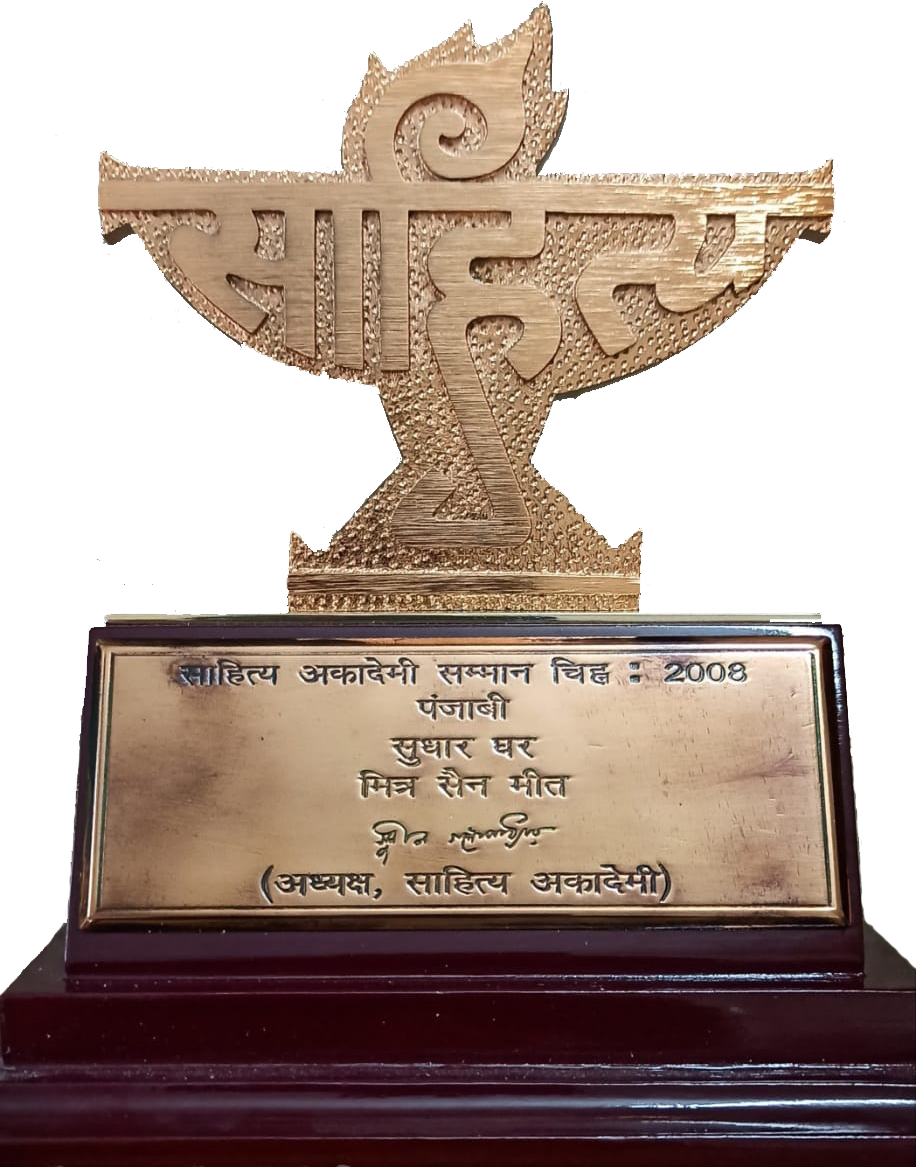ਜ਼ਮਾਨਤ ਦਾ ਫੈਸਲਾ ਕਰਦੇ ਸਮੇਂ ਅਦਾਲਤ ਦੇ ਧਿਆਨ ਯੋਗ ਹਦਾਇਤਾਂ
(Principles which the Court is to follow while deciding the matter of regular bail)
1. ਦੋਸ਼ੀ, ਮੁਦਈ ਜਾਂ ਗਵਾਹ ਵੱਲੋਂ ਪੇਸ਼ ਕੀਤੇ ਗਏ ਤਰਕਾਂ/ਪੱਖਾਂ ਦੇ ਅਧਾਰ ਤੇ ਜ਼ਮਾਨਤ ਮੰਨਜ਼ੂਰ ਨਹੀਂ ਕੀਤੀ ਜਾ ਸਕਦੀ।
Case : Umesh @ Ummi vs. State of U.P., 2005 Cr.L.J.3043 (Allahabad – HC)
Para “2. “The bail application has to be decided on the evidence collected by the Investigating officer and other norms laid down by the superior court from time to time. This procedure no where provides that at the time of hearing of the bail, the accused or complainant or witnesses may appear and make any submission before the court and such submission may be given weight for disposal of the bail.”
2. ਗ੍ਰਿਫਤਾਰੀ ਤੋਂ ਬਾਅਦ ਹੋਣ ਵਾਲੀ ਜ਼ਮਾਨਤ ਦਾ ਮਾਮਲਾ ਵਿਚਾਰਦੇ ਸਮੇਂ ਅਦਾਲਤ ਨੂੰ ਪੀੜਿਤ ਅਤੇ ਮੁਲਜ਼ਮ ਦੋਹਾਂ ਦੇ ਹਿਤਾਂ ਵਿੱਚ ਸੰਤੁਲਨ ਰੱਖਣਾ ਚਾਹੀਦਾ ਹੈ।
Case (i) : Ramesh Vs. State of Haryana, 1997 (2) RCR (Crl) 337, 1997 Cr.L.J.2848 (P & H – HC)
Para “8. Law of bail should balance between two conflicting demands. Shielding the society from mis-adventures of accused and presumption of innocence of accused till he is found guilty.”
Case (ii) : Shahzad Hasan Khan vs. Ishtiaq Hasan Khan 1987 Cri.L.J. 1872 (SC)
Para “6. Liberty is to be secured through process of law which is administered keeping in mind the interest of the accused, the near and dear of the victim who lost his life and who feel helpless and believe that there is no justice in the world as also the collective interest of the community so that parties do not lose faith in the institution and indulge in private retribution”.
3. ਗ੍ਰਿਫਤਾਰੀ ਤੋਂ ਬਾਅਦ ਹੋਣ ਵਾਲੀ ਜ਼ਮਾਨਤ ਦਾ ਮਾਮਲਾ ਵਿਚਾਰਦੇ ਸਮੇਂ ਅਦਾਲਤ ਨੂੰ ਆਪਣੇ ਅਧਿਕਾਰਾਂ ਦੀ ਵਰਤੋਂ ਸਿਆਣਪ (judicious manner) ਨਾਲ ਕਰਨੀ ਚਾਹੀਦੀ ਹੈ। ਹੁਕਮ ਵਿੱਚ ਜ਼ਮਾਨਤ ਮੰਨਜ਼ੂਰ ਕਰਨ ਦੇ ਕਾਰਨਾਂ ਦਾ ਜ਼ਿਕਰ ਕਰਨਾ ਚਾਹੀਦਾ ਹੈ।
Case : Shahzad Hasan Khan vs. Ishtiaq Hasan Khan 1987 Cri.L.J. 1872
Para “19. The law in regard to grant or refusal of bail is very well settled. The court granting bail should exercise its discretion in a judicious manner and not as a matter of course. Though at the stage of granting bail a detailed examination of evidence and elaborate documentation of the merit of the case need not be undertaken, there is a need to indicate in such orders reasons for prima facie concluding why bail was being granted, particularly where the accused is charged of having committed a serious offence. Any order devoid of such reasons would suffer from non-application of mind”.
It was further observed:-
Para “29.The jurisdiction to grant bail must be exercised on the basis of well settled principles having regard to the circumstances of each case.”
4. ਗ੍ਰਿਫਤਾਰੀ ਤੋਂ ਬਾਅਦ ਹੋਣ ਵਾਲੀ ਜ਼ਮਾਨਤ ਦਾ ਮਾਮਲਾ ਵਿਚਾਰਦੇ ਸਮੇਂ ਅਦਾਲਤ ਨੂੰ ਜ਼ੁਰਮ ਦੀ ਗੰਭੀਰਤਾ/ਕਿਸਮ (nature of offence) ਦਾ ਧਿਆਨ ਰੱਖਣਾ ਚਾਹੀਦਾ ਹੈ।
Case : Ram Gobind Upadhayay Vs. Sudarshan Singh 2002 Cr.L.J.1849(1), AIR 2002 SC 1475 (SC)
Para “3. ….. The nature of the offence is one of the consideration for the grant of bail – more heinous is a crime, the grater is the chance of rejection of the bail , though, however, depend on the factual matrix of the matter.”
5. ਗ੍ਰਿਫਤਾਰੀ ਤੋਂ ਬਾਅਦ ਹੋਣ ਵਾਲੀ ਜ਼ਮਾਨਤ ਦਾ ਮਾਮਲਾ ਵਿਚਾਰਦੇ ਸਮੇਂ ਅਦਾਲਤ ਨੂੰ ਹੇਠ ਲਿਖੇ ਪੱਖਾਂ ਨੂੰ ਧਿਆਨ ਵਿੱਚ ਰੱਖਣਾ ਚਾਹੀਦਾ ਹੈ:
ੳ) ਸਰਸਰੀ ਨਜ਼ਰੇ ਇਹ ਲੱਗਣਾ ਕਿ ਦੋਸ਼ੀ ਵੱਲੋਂ ਜ਼ੁਰਮ ਕੀਤਾ ਗਿਆ ਹੈ,
ਅ) ਲੱਗੇ ਦੋਸ਼ ਦੀ ਕਿਸਮ ਅਤੇ ਗੰਭੀਰਤਾ,
ੲ) ਦੋਸ਼ ਸਿੱਧ ਹੋਣ ਤੇ ਕੀਤੀ ਜਾ ਸਕਣ ਵਾਲੀ ਵੱਧੋ-ਵੱਧ ਸਜ਼ਾ
ਸ) ਮੁਕੱਦਮੇ ਦੀ ਸੁਣਵਾਈ ਦੌਰਾਨ ਦੋਸ਼ੀ ਦੇ ਫਰਾਰ ਹੋਣ ਦੀ ਸੰਭਾਵਨਾ,
ਹ) ਦੋਸ਼ੀ ਦਾ ਸਮਾਜ ਵਿੱਚ ਰੁਤਬਾ,
ਕ) ਦੋਸ਼ੀ ਵੱਲੋਂ ਦੁਬਾਰਾ ਉਹੋ ਜਿਹੇ ਜ਼ੁਰਮ ਕਰਨ ਦੀ ਸੰਭਾਵਨਾ,
ਖ) ਗਵਾਹਾਂ ਨੂੰ ਡਰਾਉਣ ਧਮਕਾਉਣ ਦੀ ਸੰਭਾਵਨਾ ਅਤੇ
ਗ) ਤਫਤੀਸ਼ ਵਿੱਚ ਦਖਲ-ਅੰਦਾਜ਼ੀ ਆਦਿ
Case : State through CBI Vs.Amar Muni Tripathi, 2005 Cr.L.J.4149 the following eight considerations.
“(i) whether there is any prima facie or reasonable ground to believe that the accused had committed the offence(ii),nature and gravity of the charge, (iii) severity of the punishment in the event of conviction, (iv) danger of accused absconding or fleeing if released on bail, (v)character, behaviour, means, position and standing of the accused, (vi) likelihood of the offence being repeated,(vii) reasonable apprehension of the witnesses being tampered with ; and (viii) danger of, course of justice being thwarted by grant of bail.”
6. ਗ੍ਰਿਫਤਾਰੀ ਤੋਂ ਬਾਅਦ ਹੋਣ ਵਾਲੀ ਜ਼ਮਾਨਤ ਦਾ ਮਾਮਲਾ ਵਿਚਾਰਦੇ ਸਮੇਂ ਅਦਾਲਤ ਨੂੰ ਇਹ ਵੀ ਧਿਆਨ ਵਿੱਚ ਰੱਖਣਾ ਚਾਹੀਦਾ ਹੈ। ‘ਸਰਸਰੀ ਨਜ਼ਰ’ ਨਾਲ ਘੋਖਣ ਤੇ ਦੋਸ਼ੀ ਉੱਪਰ ਲੱਗੇ ਦੋਸ਼ਾਂ ਬਾਰੇ, ਉਸਦੀ ਕੀ ਰਾਏ ਬਣਦੀ ਹੈ।
Case : Ram Gobind Upadhayay Vs. Sudarshan Singh 2002 Cr.L.J.1849, AIR 2002 SC 1475
Para “4. ….. (c) While it is not accepted to have the entire evidence establishing the guilt of the accused beyond reasonable doubt but there ought always to be a prima-facie satisfaction of the Court in support of the charge.”
7. ਗ੍ਰਿਫਤਾਰੀ ਤੋਂ ਬਾਅਦ ਹੋਣ ਵਾਲੀ ਜ਼ਮਾਨਤ ਦਾ ਮਾਮਲਾ ਵਿਚਾਰਦੇ ਸਮੇਂ, ਅਦਾਲਤ ਨੂੰ, ਦੋਸ਼ੀ ਵੱਲੋਂ ਸ਼ਹਾਦਤ ਵਿੱਚ ਤੋੜ-ਭੰਨ ਕਰਨ ਦੀ ਸੰਭਾਵਨਾ ਨੂੰ ਧਿਆਨ ਵਿੱਚ ਰੱਖਣਾ ਚਾਹੀਦਾ ਹੈ।
Case : State through CBI Vs.Amar Muni Tripathi, 2005 Cr.L.J.4149 (SC)
Para “19. ….. if the accused is of such character that his mere presence at large should intimidate the witnesses or if there is material to show that he will use his liberty to subvert justice or temper with the evidence, then bail will be refused”.
8. ਦੋਸ਼ੀ ਵੱਲੋਂ ਗਵਾਹੀਆਂ ਵਿੱਚ ਛੇੜ-ਛਾੜ ਦੀ ਸੰਭਾਵਨਾ ਦੋਸ਼ੀ ਦੀ ਜ਼ਮਾਨਤ ਰੱਦ ਕਰਨ ਦਾ ਕਾਰਨ ਬਣ ਸਕਦੀ ਹੈ।
Case : Chuni Lal and others vs. State of H.P., 1996 Cr.L.J.3864 (H.P. – HC)
Para “12. ….. Therefore, there is every likelihood that the two petitioners, if released on bail are likely to tamper with the evidence by exercising their powers and influence being the police officials. This may not result into a fair trial. The bail application of the two petitioners, as such, is liable to be rejected on this short ground alone.”
9. ਦੋਸ਼ੀ ਨੂੰ ਸੀਮਿਤ ਸਮੇਂ ਲਈ ਜ਼ਮਾਨਤ ਉੱਪਰ ਰਿਹਾ ਨਹੀਂ ਕੀਤਾ ਜਾ ਸਕਦਾ।
Case : State of UP Vs. Atique Ahmed, 2002 Cr.L.J.3238 (SC)
“….. If a case for release of the applicant on bail is not otherwise made out, he cannot be released on bail for a limited period, only for keeping watch over his future conduct and activities during the period. …..”
10. ਗ੍ਰਿਫਤਾਰੀ ਤੋਂ ਬਾਅਦ ਹੋਣ ਵਾਲੀ ਜ਼ਮਾਨਤ ਦਾ ਮਾਮਲਾ ਵਿਚਾਰਦੇ ਸਮੇਂ ਅਦਾਲਤ ਦੋਸ਼ੀ ਦੇ ਸਾਥੀ-ਦੋਸ਼ੀ ਵੱਲੋਂ, ਅਦਾਲਤੋਂ ਬਾਹਰ ਕੀਤੇ ਇਕਬਾਲ (extra judicial confession) ਨੂੰ ਵਿਚਾਰ ਸਕਦੀ ਹੈ।
Case (i): State through CBI Vs. Amarmani Tripathi, 2005 Cr.L.J.4149
Para “22. ….. The contentions of Respondents that the confessional statement of Rohit Chaturvedi is inadmissible in evidence and that should be excluded from consideration, for purpose of bail is untenable… This Court had negatived a somewhat similar contention, in Kalyan Chandra Sarkar…”
Case (ii) : Habib Khan Usman Khan Pathan Vs. State of Gujrat, 2004 Cr.L.J. NOC 217 (Gujrat-HC)
“Bail application by Petitioner- statement of main accused obtained by Investigation Agency- may not be admissible in evidence but at the time of considering bail application, it is really a relevant evidence to prove prima-facie the involvement of petitioner. The Hon’ble High Court can go into that statement of facts and decide bail application relying upon such statement”.






More Stories
ਪਹਿਲੀ ਸੂਚਨਾ ਰਿਪੋਰਟ / ਐਫ.ਆਈ.ਆਰ. /FIR
ਗਵਾਹਾਂ ਦੇ ਬਿਆਨ/ Statement of witnesses
ਦੋਸ਼ੀ ਦੀ ਪੇਸ਼ਗੀ ਜ਼ਮਾਨਤ/Anticipatory bail